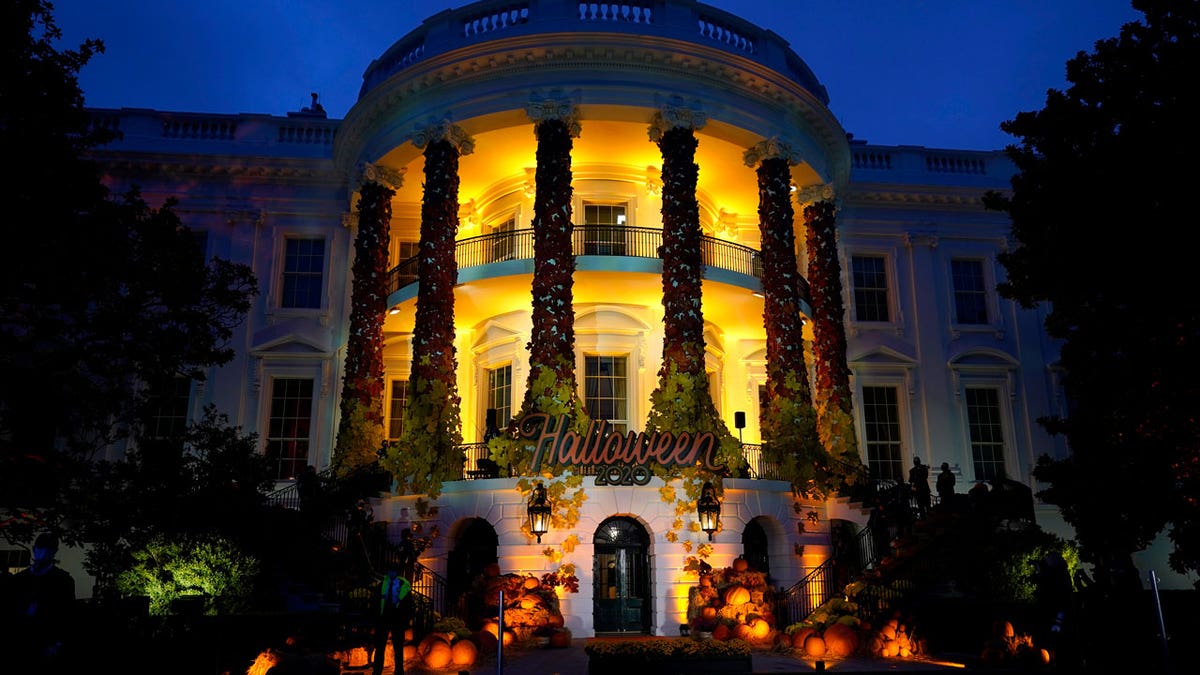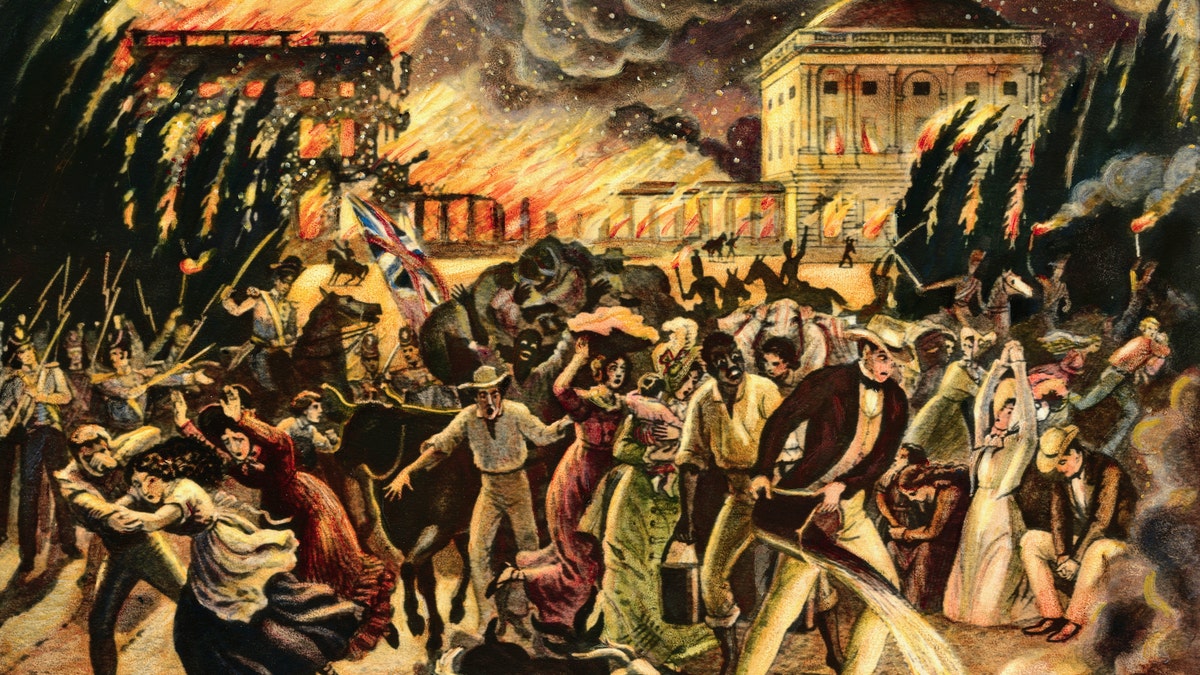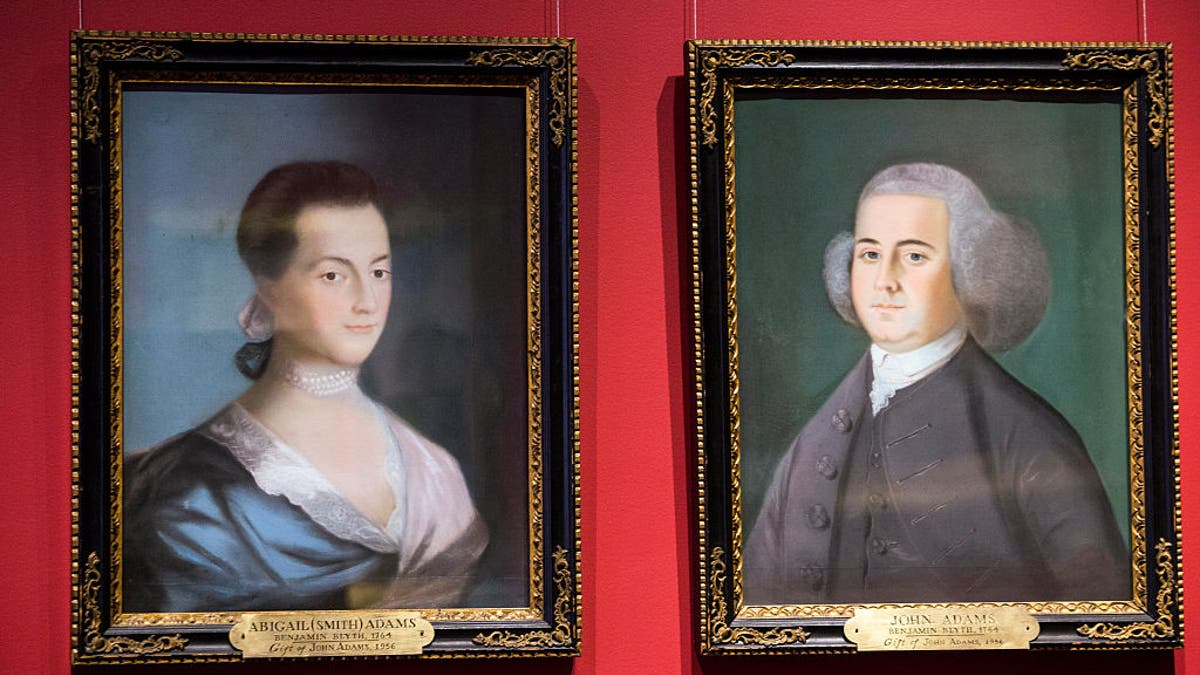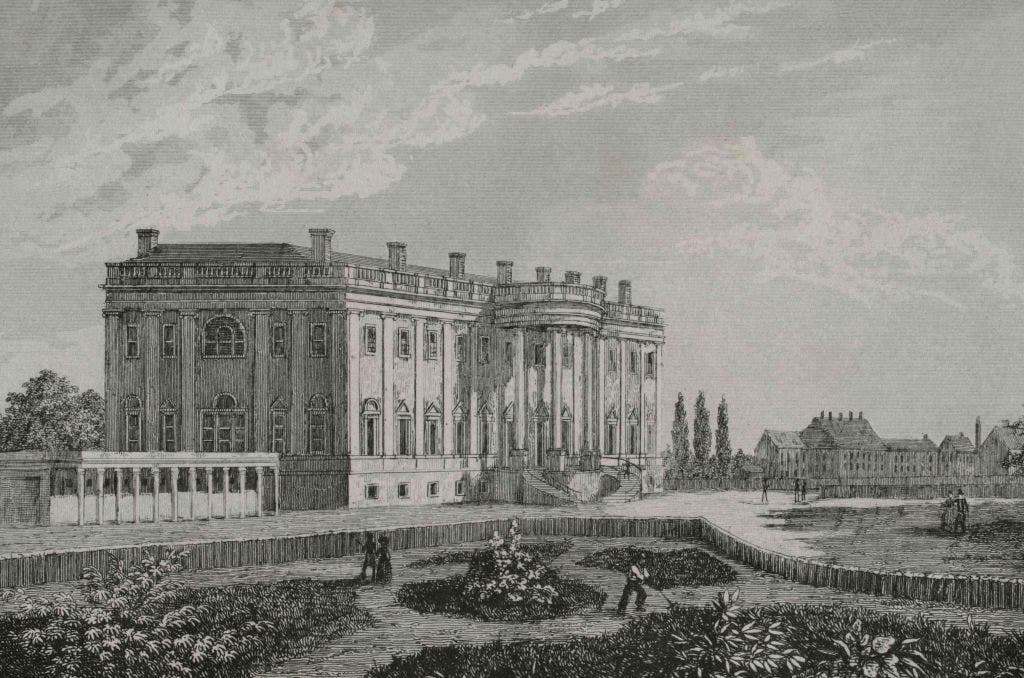Construction of the White House, a global symbol of American power and political stability, began with the laying of its cornerstone on this day in history, Oct. 13, 1792.
“James Hoban, an Irish-born and trained architect then living in South Carolina, won the design competition for the White House,” reports the White House Historical Association.
“It was planned and constructed under the personal supervision of President George Washington.”
ON THIS DAY IN HISTORY, OCTOBER 12, 2000, TERROR ATTACK ON USS COLE KILLS 17 AMERICAN SAILORS, WOUNDS DOZENS
Hoban had arrived in the United States in 1785. His vision for the neoclassical mansion was selected by Congress over several designs, including one submitted by Thomas Jefferson.
He was inspired by the Palladian style of the Leinster House in Dublin.
President George Washington announced on Jan. 24, 1791, that a new capital city, a District of Columbia, would be built upon 100 square miles of land at the confluence of the Potomac and Anacostia rivers.
Planners named the city Washington, D.C., in honor of the war hero and Father of His Country on September of that year.
The president’s proclamation included plans for an executive mansion.
“Washington and Pierre Charles L’Enfant, the French planner of the federal city, chose the site for the residence,” reports the Library of Congress of the landmark moment in both American poetical and architectural history.
FLIGHT FRIGHT: FAMILY ASKS PERSON TO SWITCH PLANE SEATS, HE REFUSES — AND BIG TROUBLE ENSUES
“Constructed of white-gray sandstone that contrasted sharply with the red brick used in nearby buildings, the President’s House, also known as the Executive Mansion, was called the White House as early as 1812.”
The name of the mansion was officially changed to the White House by President Theodore Roosevelt on Oct. 12, 1901.
Slaves, along with paid labor, were used to clear land for the city and help construct the mansion, according to many sources.
It was coated in white lime paint in 1798, giving its more distinct true white color.
The name of the mansion was officially changed to the White House by President Theodore Roosevelt on Oct. 12, 1901.
The White House sandstone was quarried from the Aquia Creek, a tributary of the Potomac south of Washington D.C., near present-day Marine Corps Base Quantico.

The initial cornerstone itself has been the source of considerable mystery and conspiracy theories related to the Freemason status of both President Washington and Hoban.
ON THIS DAY IN HISTORY, AUGUST 24, 1814, BRITISH TROOPS RANSACKED, TORCHED WHITE HOUSE AND CAPITOL
Freemasons from nearby Alexandria, Virginia, lobbied on behalf of Hoban to earn the honor of building the White House, said Freemason historian Chris Ruli in a recent White House Historical Association podcast.
Freemasons also led the cornerstone ceremony, he said.
The mansion suffered devastation soon after it was completed. British troops ransacked and torched both the White House and the U.S. Capitol on August 24, 1814, during the War of 1812.

“The ensuing fire reduced all but one of the capital city’s major public buildings to smoking rubble, and only a torrential rainstorm saved the Capitol from complete destruction,” states the official version of events by the U.S. Senate.
Hoban oversaw its reconstruction and spent the rest of his life in Washington, D.C., even serving as a member of the city council for many years.
For more Lifestyle articles, visit www.foxnews.com/lifestyle
Its distinctive porticoes were completed in 1829, giving the mansion the muscular classical look known worldwide today.
It features 132 rooms, 35 bathrooms, 28 fireplaces and eight staircases — and requires 570 gallons of white paint to coat it façade, according to online White House sources.
It cost $232,372 to build back then — and was the largest home in the United States until after the Civil War.

The White House was largely built during Washington’s time in office.
But he never lived in it. It was late in the administration of second President John Adams: He and Abigail moved into the executive mansion on Nov. 1, 1800, even as finishing touches were still being put on the home.
“I pray Heaven to bestow the best of Blessings on this House and all that shall hereafter inhabit it,” Adams wrote to the first lady the following day.
“May none but honest and wise men ever rule under this roof.”













